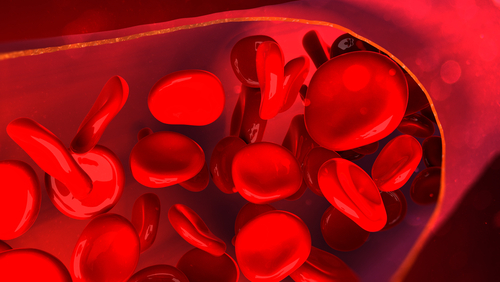In Phase 3 Trial of Hemophilia Therapy Emicizumab, 4 Patients Get Blood Clots

Four patients taking part in a Phase 3 clinical trial of Roche’s investigational hemophilia drug emicizumab (ACE910) have experienced serious thrombotic events, blood clots that cause partial or total obstruction, Reuters reported this week.
The patients were being treated for breakthrough bleeding. According to Reuters, a Roche spokesperson said the serious thrombotic events were seen in four patients who were treated with one of two bypassing agents (Shire’s Feiba and Novo’s NovoSeven), products that do not replace the missing factors but go around the effects of inhibitors to help the body coagulate.
The Haven 1 Phase 3 clinical trial (NCT02622321) is evaluating the effectiveness, safety and characteristics of preventive emicizumab compared to no preventive drugs in up to 118 hemophilia A patients who have previously been treated with episodic or preventive bypassing agents.
Emicizumab is administered subcutaneously at a dose of 3 mg per kg of body weight a week for four weeks followed by 1.5 mg/kg a week up to the trial’s end. The study’s primary endpoint is the number of bleeds over time in up to 24 weeks or discontinuation from the study, whichever occurs first. Secondary endpoints include the assessment of several safety issues.
Hemophilia A is caused by a mutation in the gene for factor VIII, so there is deficiency of this clotting factor that participates in blood coagulation. This mutation induces bleeding problems that may cause symptoms including fatigue, severe anemia, and weakness.
One of the standard utilized therapies for hemophilia A is the regular administration of prophylactic (preventive) and episodic intravenous infusions of factor VIII. These therapies, however, have several drawbacks, particularly in the case of children and patients with poor accessibility to veins. They could also induce production of the anti-factor VIII alloantibodies (factor VIII inhibitors), which makes the treatment with factor VIII inefficient.
Emicizumab (ACE-910) is an investigational humanized bispecific monoclonal antibody that simultaneously binds factors IXa and X. The medication mimics the cofactor function of factor VIII and promotes blood coagulation in hemophilia A patients, regardless of whether they have developed inhibitors to factor VIII. Emicizumab, created by Chugai Pharmaceutical, is being co-developed by Genentech.
In September 2015, the U.S. Food and Drug Administration (FDA) granted breakthrough therapy designation to emicizumab for the preventive treatment of people 12 years and older with hemophilia A with factor VIII inhibitors.
In a Phase 1 clinical trial, emicizumab demonstrated encouraging results as a preventive weekly treatment in people with severe hemophilia A with and without inhibitors to factor VIII. Emicizumab is being closely watched, as it could change the way hemophilia A is treated, Reuters notes.






